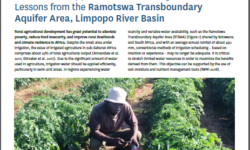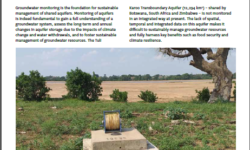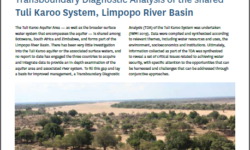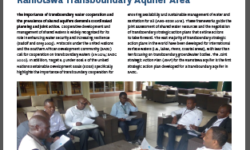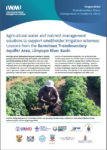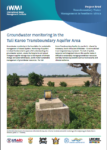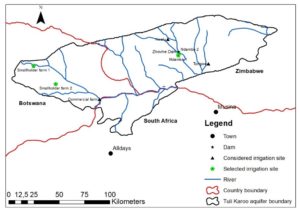Enhancing resilience through managed aquifer recharge in the Tuli Karoo Transboundary Aquifer Area: What is the potential?

The Tuli Karoo Transboundary Aquifer Area (12,294 km²) – shared by Botswana, South Africa and Zimbabwe – is home to more than 120,000 people that utilize water for domestic needs, agriculture and mining. However, water availability for these uses is severely constrained by low rainfall, high evaporation and significant rainfall…






